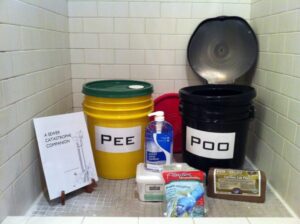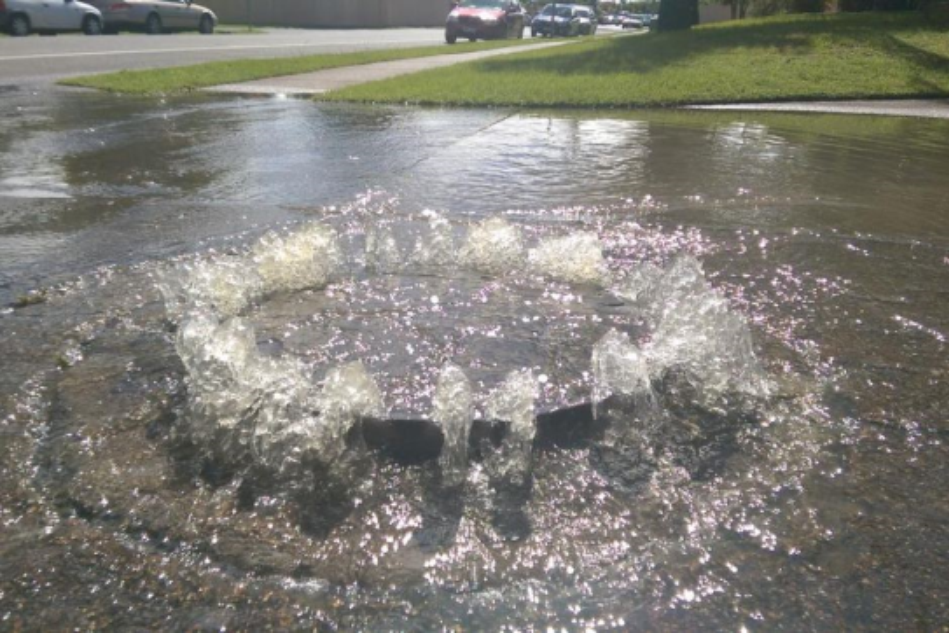Winter Weather and Wastewater Systems
If fall and early winter of 2022 taught us anything, it is to be prepared for weather emergencies. Between Hurricane Ian in September and the “bomb cyclone” freezing temperatures of the winter holidays, the South, unfortunately, saw its fair share of weather-related disasters. Water and wastewater systems are among the hardest-hit utilities during extreme weather events.
Causes of Disaster During Weather Events
Freezing temperatures can cause cracks in water and wastewater pipes, and wet weather storms can cause excessive I&I — inflow of stormwater and infiltration of groundwater through cracks in pipes and other damaged wastewater infrastructure. When this extra water, which normally seeps into the ground or is reintroduced into the environment through storm drains, it enters into wastewater pipes instead. This can easily overwhelm wastewater sewer systems, causing sanitary sewer overflows from manholes that can enter basements or flood streets with untreated sewage. One recent, vivid example comes from the town of Pacifica, California, just South of San Francisco, where sewage flooded an entire neighborhood’s streets and lawns.
Proactive Infrastructure Protection
MetroConnects is working in partnership with ReWa, your local wastewater treatment services provider, to protect Greenville County communities from these types of wet weather events. Our proactive maintenance and rehabilitation of sewer pipes throughout the county is already helping to slow I&I. In November, MetroConnects’ engineers reported that its first three “wet weather” projects had exceeded its I&I abatement goals in the Pelham and Maudlin areas by more than 2 million gallons per day!
We are continuing to protect public health and the environment by taking steps to prevent disruptions to wastewater systems during weather events and other natural disasters by identifying problem areas and prioritizing rehabilitation there, keeping our maps up-to-date on where sewer lines are located, and responding to calls from customers like you who notice signs of leaks or backups in your pipes.
Preparation at Home
In addition to the proactive maintenance that MetroConnects provides for the public to help protect against disaster, it is important that every individual prepares as well and has a plan in place should a weather event or other natural disaster occur. While we might all be aware of steps like boarding up windows and making sure you have enough food and water to get by for a few days, sanitation needs can easily be forgotten. The CDC has extensive guidelines on how to prepare for a disaster on their Web site, but some key sanitation takeaways include the following:
1. Stock up on bottled water. Storms can wreak havoc on water systems, so you want to make sure you have plenty of clean water for drinking, cooking, and brushing your teeth in the event that tap water is not available. Don’t forget to store extra for hand washing and cleaning. Poor hygiene can be among the leading causes of illness and even death during emergencies. If you experience flooding or sanitary sewer overflows in your area, it is all the more important that you have clean water available to help you keep yourself and your surroundings clean.
2. Prepare for waste disposal. It is not fun to think about, but should disaster strike, your plumbing system might be out of commission for some time. Human waste can cause a serious health threat if it is not disposed of properly. Consider having an emergency “twin bucket” make-shift toilet system available in your home to help you get by until your plumbing is back in working order. To make the toilets, fix two five-gallon buckets with toilet seats and label one “Poop” and the other “Pee” (or any other fun name you prefer!). Urine is non-toxic and can be disposed of on land or in storm drains. Fecal matter contains pathogens and needs to be treated with carbon material (sawdust, coffee grounds, shredded paper, etc.) and left to dry and turn into compost in the bucket.

3. Stock sanitary supplies. These might include hand sanitizer, toilet paper, paper towels, feminine hygiene products, diapers, dish soap, and a solution of one tablespoon of bleach per one gallon of water for disinfecting surfaces. Keep this all together as an emergency reserve in an easy-to-reach spot in your house. A bonus of the twin-buckets: You can store all these supplies inside each of your bucket make-shift toilets!
Last but not least, keep emergency numbers on hand. If a disaster hits and you notice any signs of plumbing backups or sewage overflows, call MetroConnects at (864) 277-4442 right away. We are available 24/7 to help with emergencies!
